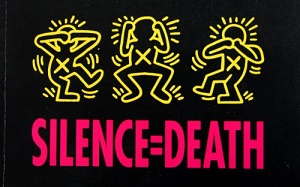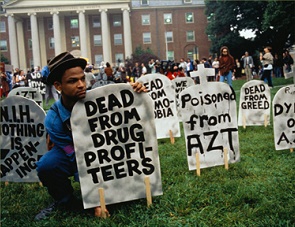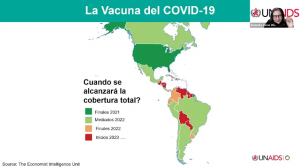At the last meeting of the Global Fund´s Board, the Sustainability, Transition and Co-Financing Policy (available at this link) was approved. The Policy states that: “the Global Fund’s approach to supporting sustainability and transition is based on the central premise that planning for sustainability is something that should be taken into account by all countries regardless of where they sit on the development continuum. […] In addition, experience shows that planning a transition from the support provided by the Global Fund takes time and resources.”
 And the Policy goes on: “In many countries this involves addressing complex issues such as changing legislation to allow for the public sector to contract with non-public sector providers such as civil society organizations, effectively supporting domestic advocacy for health spending and improving procurement processes and access to ensure that countries can purchase key commodities such as second line ARVs and multidrug resistant TB drugs at efficient prices. There is often also significant political advocacy needed to ensure the right interventions based on a particular country’s disease epidemiology.”
And the Policy goes on: “In many countries this involves addressing complex issues such as changing legislation to allow for the public sector to contract with non-public sector providers such as civil society organizations, effectively supporting domestic advocacy for health spending and improving procurement processes and access to ensure that countries can purchase key commodities such as second line ARVs and multidrug resistant TB drugs at efficient prices. There is often also significant political advocacy needed to ensure the right interventions based on a particular country’s disease epidemiology.”
A Problem in the Definition
The main issue with both the Global Fund and other stakeholders is to confuse “transition” with “sustainability”, as if these were all sides of the same coin. The Fund’s transition, like any international donor, is the more or less orderly shift from the domestic of investment to one of external funding. The transition is a means to make this process less painful and reduce the donors political cost. It is, in itself, a means or a process, not the end. It is important to point this out because in the coming months «transition» will be the buzzword, without there being an adequate understanding of its meaning. Many have already started “transitioning work” without even taking the time and the trouble to think about what it means.
Another important issue to clarify is that the Global Fund does not transition from a country because the country is prepared to live without the Fund, but rather because there is a political decision to leave before its time. Most of the countries that the Fund has left or will leave are not prepared or ready for this. And we´re seeing some rebounding of HIV in “graduated countries” to prove they were wrong. A true and honest transition just happens; it is not made to happen. What can be best achieved, with well-planned work, is an improvement on the sustainability of parts of the Health Systems and lesser the Community Systems.
 So, the first thing is the honesty to call things by their proper name, and “transitioning” is a euphemism for “leaving”: the Global Fund is leaving countries with middle income and concentrated epidemics behind a smoke screen called “transition readiness assessment and plans”.
So, the first thing is the honesty to call things by their proper name, and “transitioning” is a euphemism for “leaving”: the Global Fund is leaving countries with middle income and concentrated epidemics behind a smoke screen called “transition readiness assessment and plans”.
There are few examples of success where a funding agent has left a programme when the conditions were in place for this to happen. However, there are already “successful cases” of what life is like in some countries after the Global Fund, with deceiving information and evidence that is the result of superficial research. Or the cases mentioned are about countries where the Global Fund has never been necessary. We cannot consider research to be serious when the information and evidence are only gathered via Skype from a desk on the other side of the world. Assessment, reports and case study are only pictures anyway that show a static situation.
It’s Transition Season
Some NGOs, networks and initiatives have now gone out in to the market to raise funds with the high-minded intention of working on transition issues. But building tools and workshops are not urgent to prove something we already know: when the Global Fund withdraws, the vast majority of civil society organizations will face extinction because of their nature and way of working. Don’t need much research for that. It is easy to estimate the commitment and capacity of a country, political will permitting, to absorb treatments, care and in some cases some of the combined prevention services. But we know for a fact that those organizations and groups which perform advocacy work, watchdog and monitor goverments’s poor policies and practices will disappear without external resources.
There is a possibility that a large part of the peer based work in prevention and adherence with key populations and people with HIV will be left unfunded, if the response were to be financed solely with domestic funds, while those NGOs that do advocacy will receive nothing.
The Cinderella scenario
 It is hard to imagine our governments “feeding” the all so necessary “watch dog role ” that bark, and may often “bite”. Will they now bite the hand that should feed them? It is sad but illogical that this should will work. Don’t fool ourselves. This is inmoral!
It is hard to imagine our governments “feeding” the all so necessary “watch dog role ” that bark, and may often “bite”. Will they now bite the hand that should feed them? It is sad but illogical that this should will work. Don’t fool ourselves. This is inmoral!
Those of us who work to prevent this from happening must not spend money on expensive thermometers to measure what we already know is a fever, or we won’t have resources left to invest in the antipyretic drug to lower the temperature. Otherwise, we will fall into the sirens’ song of the eternal diagnosis, which will be futile if it can’t be accompanied by a remedy, and we will a publish articles describing what is not happening and what will not happen. Some of the money to be spendt assessing readiness could keep few CSO running for a couple of years after Global departed.
The only thing that will probably work, on moving forward on sustainability, in some cases, is that civil society will team up, with other sectors, not necessarily working from HIV, to create coalitions that advocate for local funding based on needs and evidence. This includes the allocation of local resources to some autonomous mechanism that will keep externally funding the organizations that will continue to be critical to their governments. Such a mechanism is highly necessary and will disappeared, all the more so when we are left alone and at the mercy of the owners of the State. The Treatment Action Campaign almost disappear due to lack of funding, can think on the consequence of them not long been able to do their work.
Are the countries and their civil society organizations prepared to live with what they have, on their own, without any external investment? Obviously not, but there is no harm in saying it.
Sustainability
 Including evaluations of the extent of preparation for the transition could become a placebo, a smokescreen, to cover up how the Global Fund —and others— exit stage left while we work on the diagnosis.
Including evaluations of the extent of preparation for the transition could become a placebo, a smokescreen, to cover up how the Global Fund —and others— exit stage left while we work on the diagnosis.
Sustainability is, among other things, the combination of the following factors:
– Financially self-sustainable civil society organizations with a model of access to diversified resources (including non-traditional donors).
– Organizations with a high level of social capital and legitimacy whose potential disappearance would mobilize a community to defend them.
– Sustainable and resilient community systems (whatever these really mean).
– National coalitions of civil society organizations that work on issues of budget, accountability and transparency.
– Local and national investment mechanisms for community systems, without punishing organizations that do advocacy work.
– Legal frameworks that, instead of discriminating and stigmatizing, promote equality and the full realization of human rights, that encourage access to friendly services, that collaborate in increasing timely access for key populations to combination prevention.
– A multi-sector mechanism for the establishment of policies, the design of a strategic national multi-sector plan and its monitoring.
– All this will not happen in three years, or in six years.
Do you know any countries where this happens, aside from their the sugar coated stories publish by many, including the Global Fund?
Let us not be tempted by more processes, let us begin to do a responsible job of creating the mechanisms and mobilizing resources in the field, which are essential, to sustain the response. Let us not spend much time on diagnosing if we cannot help in the solution to the problem, and remember that when we diagnose, expectations are generated on the «subjects» which in this case would be “unanswered prayers”.











Añadir comentario